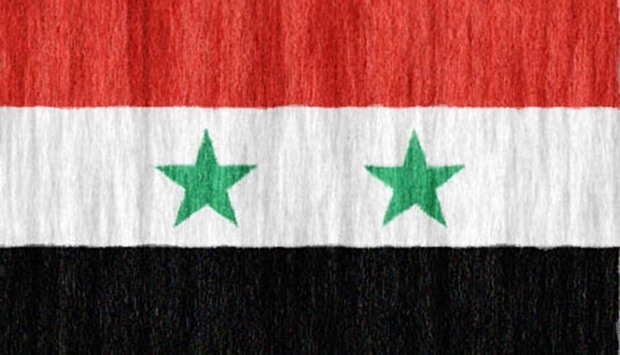Syria’s government and rebels will re-start peace talks on March 7 if a ceasefire holds and more aid is delivered, the UN envoy said yesterday.
Staffan de Mistura announced the date for the new round of talks less than an hour before a cessation of hostilities was due to enter into force at 2200 GMT.
The UN Security Council meanwhile threw its weight behind the ceasefire agreement and demanded that it be upheld.
The council unanimously adopted a resolution drafted by Russia and the US that endorses the ceasefire deal and “demands that the cessation of hostilities to begin at midnight (Damascus time)”
Earlier, intense Russian air strikes battered rebel bastions across Syria, a monitor said, hours before the deadline for the landmark ceasefire in the country’s five-year civil war.
US President Barack Obama has warned Damascus and key ally Moscow that the “world will be watching”.
Both President Bashar al-Assad’s regime and the main opposition body have agreed to the deal - which allows fighting to continue against the Islamic State group and other militants.
The agreement brokered by Russia and the US marks the biggest diplomatic push yet to help end Syria’s violence, but has been plagued by doubts after previous peace efforts failed.
Members of the 17-nation group backing the process were meeting in Geneva to work out further details of the so-called “cessation of hostilities.”
The Syrian Observatory for Human Rights, a Britain-based monitor, said Russia and the regime had launched a wave of attacks on rebel areas ahead of the deadline.
“It’s more intense than usual. It’s as if they want to subdue rebels in these regions or score points before the ceasefire,” Observatory head Rami Abdel Rahman said.
Russia launched air strikes in Syria last September saying it was targeting “terrorists”, but critics have accused Moscow of hitting rebel forces in support of Assad, a longtime ally.
The Observatory said there had been Russian strikes on rebel bastions including the Eastern Ghouta region outside Damascus, northern Homs province and the west of Aleppo province.
There were at least 26 air strikes on Eastern Ghouta including 10 on its main city of Douma which was facing heavy regime shelling, it said.
Russian President Vladimir Putin insisted Moscow would continue targeting “terrorist groups”.
“The decisive fight against them will, without doubt, be continued,” Putin said in televised remarks.
“We understand fully and take into account that this will be a complicated, and maybe even contradictory process of reconciliation, but there is no other way,” Putin said.
The intensified attacks prompted Turkey, a key supporter of opposition forces, to express worries over the viability of the ceasefire.
“We are seriously concerned over the future of the ceasefire because of the continuing Russian air raids and ground attacks by forces of Assad,” presidential spokesman Ibrahim Kalin told reporters in Ankara.
The complexity of Syria’s battlefields - where moderate and Islamist rebel forces often fight alongside militant groups such as the Al Qaeda affiliated Al-Nusra Front - has raised serious doubts about the feasibility of a ceasefire.
Al-Nusra’s chief Mohamed al-Jolani yesterday urged Assad’s opponents to reject the ceasefire and instead intensify attacks on the regime.
“Beware of this trick from the West and America,” he said in an audio message. “Negotiations are the ones conducted on the battlefield.”
Diplomats are reported to be working to define areas that will fall under the partial truce and to set up monitoring mechanisms.
International Committee of the Red Cross chief Peter Maurer said in Damascus he hoped the ceasefire would open up previously inaccessible areas.
“Humanitarian deliveries must not depend on political negotiations but must be allowed to continue and increase regardless of any truce or ceasefire,” he said.

SYRIA
